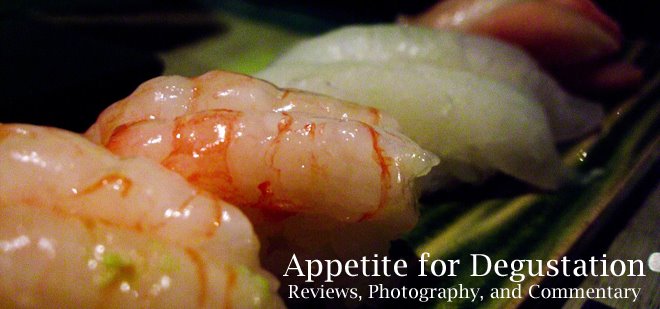It's exactly what it sounds like.
http://incredimazing.com/page/Mmmm_Krispy_Kreme_Cheeseburgers
Thursday, August 28, 2008
Tuesday, August 26, 2008
Strange Fruit: Food that Eats Itself
Not only is food sometimes anthropomorphic, sometimes it eats itself.
Check out this great collection of photos by Flickr user agmilmoe
http://www.flickr.com/photos/agmilmoe/sets/72157594356771968/
Check out this great collection of photos by Flickr user agmilmoe
http://www.flickr.com/photos/agmilmoe/sets/72157594356771968/
Sunday, August 24, 2008
Drink Up: Ginger Beer

Part of my job involves communicating with foreign law firms. One of our associates in Australia sent us a bunch of foodstuffs from the Land Down Under. His cultural exchange package included a ginger beer named Bundaberg. My only experience with ginger beer up until this point was from a few years ago at a Caribbean restaurant. Now that I think about it, it makes sense for Australia to have ginger beer too since ginger beer originated in England in the 1700s.
The name "ginger beer" is a bit of a misnomer. Ginger beer is not an alcoholic beverage...at least, not these days. Traditionally, ginger beer involved fermenting a mixture of ginger, sugar, and water with ginger beer plant, which is not a plant, but a symbiotic union between the yeast Saccharomyces florentinus and the bacteria Lactobacillus hilgardii. The fermentation process produces carbon dioxide and ethanol and qualifies the beverage as a beer. Additional flavorings such as lemon, sassafras, or licorice could be added as well.
These days, ginger beer is brewed from the same basic mixture of ginger, sugar, and water but not fermented. It is carbonated by the addition of pressurized carbon dioxide and contains no alcohol. Sounds a lot like ginger ale, no?
Ginger ale originated in Ireland as a soda drink. How is modern ginger beer different from ginger ale? They aren't much different, except for the fact that ginger beer has a stronger ginger taste to it, which means it probably has more ginger in it.
How did ginger beer lose its punch? In England, an 1855 law that taxed beverages with more than 2% alcohol was issued and hence the transformation to a non-alcoholic beverage. In the United States, ginger beer's decline in popularity was partly due to the Temperance Movement and the Prohibition.
While ginger beer is a rare sight these days, it used to be a lot more popular. According to this article by the Federation of Historical Bottle Collectors, ginger beer was the most popular beverage in England for 150 years.
For those of us who want to experience authentic ginger beer, there are many recipes on the internet.
Here are three to get you started:
- http://www.jeffreymorgenthaler.com/2008/how-to-make-your-own-ginger-beer/
- http://www.homemade-dessert-recipes.com/ginger-beer-recipes.html
- http://wildschwein.wordpress.com/2007/07/11/ye-olde-fashioned-homemade-ginger-beer-theory-and-practice/
Here is the link to the group:
http://health.groups.yahoo.com/group/GingerBeerPlant/
I'd be curious to know if anybody has ever had or made authentic ginger beer before. Please share any stories you might have! I'll follow-up if I come across more ginger beer or make some myself.
Sources:
http://www.fohbc.com/BandE_Article4.html
http://en.wikipedia.org/wiki/Ginger_beer
http://inventors.about.com/library/inventors/blginger_al.htm


Labels:
alcoholic,
beverage,
beverages,
carbonated,
drinks,
ginger,
ginger beer
Subscribe to:
Comments (Atom)
